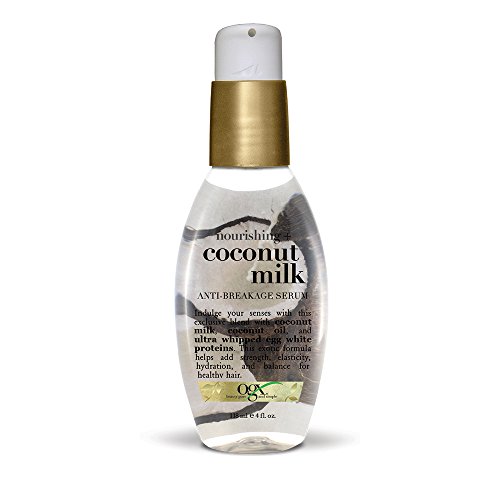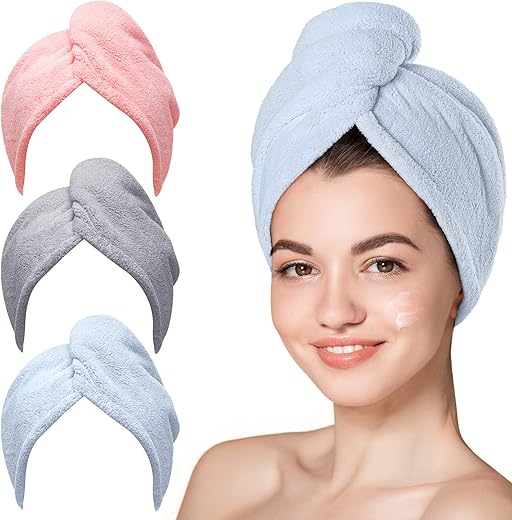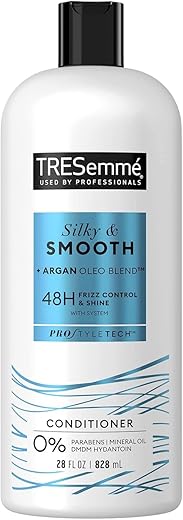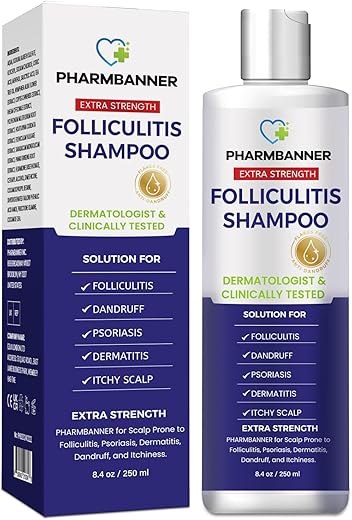
Can Organic Coconut Oil Prevent Hair Damage?
We all know how frustrating it can be to deal with hair damage. From split ends to brittle strands, it’s a constant battle to keep our hair looking healthy and vibrant. But what if there was a natural solution that could help prevent hair damage? Enter organic coconut oil. In this blog post, we delve into the potential of this miracle oil and its ability to nourish and protect our hair. So grab a cup of tea, sit back, and let’s explore the wonders of organic coconut oil for hair care.
Top-rated organic hair coconut oils for healthy, nourished locks



What is organic coconut oil?
Coconut oil has gained popularity in recent years due to its numerous health benefits and versatile uses. However, not all coconut oil is created equal. Organic coconut oil is a specific type that is produced using organic farming methods, ensuring a higher quality and more sustainable product. In this blog section, we will delve into the world of organic coconut oil, exploring its production process and highlighting the differences between organic and non-organic variants.


The Production Process
Organic Farming Methods
Organic coconut oil is made from coconuts that are grown using organic farming methods. These methods prioritize the use of natural fertilizers and pest control, avoiding the use of synthetic chemicals and genetically modified organisms (GMOs). This ensures that the coconuts and the resulting oil are free from harmful residues and additives.
Extraction Methods
After harvesting the coconuts, organic coconut oil is extracted using mechanical methods, such as cold-pressing or expeller-pressing. These techniques do not involve the use of heat or chemicals, preserving the natural goodness of the oil. The oil is then separated from the coconut meat and undergoes minimal processing to maintain its nutritional value.
Organic vs. Non-Organic Coconut Oil: What’s the Difference?
Farming Practices
- Organic coconut oil is made from coconuts that are grown without the use of synthetic pesticides, herbicides, or fertilizers. Non-organic coconut oil may contain traces of these chemicals.
- Organic farming methods promote sustainable practices that protect the environment and preserve soil health.
- Non-organic coconut oil may be produced using conventional farming methods, which can have negative impacts on ecosystems and local communities.
Quality and Purity
- Organic coconut oil is subjected to stricter regulations and certifications, ensuring a higher quality and purity compared to non-organic variants.
- Non-organic coconut oil may contain additives, preservatives, or traces of chemicals used in the production process.
Nutritional Benefits
- Organic coconut oil retains more of its natural nutrients, such as antioxidants, vitamins, and minerals, which may be diminished in non-organic varieties due to processing methods.
- Non-organic coconut oil may undergo refining processes that strip away some of its beneficial compounds.
Common causes of hair damage
Having healthy, shiny hair is something we all strive for. However, there are various factors that can lead to hair damage, leaving our locks looking dull, dry, and lifeless. In this blog post, we will explore some of the most common causes of hair damage, including heat styling, chemical treatments, and environmental factors. Understanding these causes will not only help you prevent further damage but also enable you to make informed choices about caring for your hair.



Heat Styling
One of the most significant contributors to hair damage is excessive heat styling. While heat tools like flat irons, curling irons, and blow dryers can give us the desired look, frequent use without proper precautions can wreak havoc on our hair. Here are some ways heat styling can damage your hair:
- Heat damage: Exposing your hair to high temperatures regularly can lead to the breakdown of protein bonds in your hair, resulting in weakened strands and increased susceptibility to breakage.
- Dryness: Heat styling can strip your hair of its natural oils, leading to dry, brittle hair that is prone to frizz and split ends.
- Fading color: If you regularly color your hair, excessive heat can cause the color molecules to fade quickly, resulting in a less vibrant and dull appearance.
To protect your hair from heat damage, consider the following tips:
- Use heat protectant sprays or serums before applying any heat to your hair.
- Limit the use of heat styling tools and opt for heatless hairstyles whenever possible.
- Lower the temperature settings on your heat tools to minimize the impact on your hair.
- Give your hair regular breaks from heat styling to allow it to recover and regain its natural moisture.
Chemical Treatments
Chemical treatments, such as hair dyeing, perming, relaxing, and straightening, can transform your hair, but they also come with potential risks. Here are some ways chemical treatments can damage your hair:
- Breakage: Chemical treatments can weaken the protein structure of your hair, making it more prone to breakage and damage.
- Dryness: Many chemical treatments can strip your hair of its natural moisture, leading to dryness, brittleness, and frizz.
- Scalp irritation: Some chemical treatments, especially those involving strong chemicals, can irritate the scalp and cause discomfort or even allergic reactions.
If you still want to enjoy the benefits of chemical treatments while minimizing damage, consider the following precautions:
- Choose professional stylists who have experience in performing chemical treatments to minimize the risks.
- Opt for milder, ammonia-free hair dyes and products that are less harsh on your hair.
- Follow the instructions provided by the manufacturer and avoid leaving the chemicals on your hair for longer than recommended.
- Prioritize hair care routines that focus on moisturizing and nourishing your hair to counteract the potential drying effects of chemical treatments.
Environmental Factors
Apart from styling and chemical treatments, environmental factors also play a significant role in causing hair damage. Here are some common environmental factors that can contribute to hair damage:
- Sun exposure: Prolonged exposure to the sun’s harmful UV rays can lead to dryness, discoloration, and even weaken the protein structure of your hair, making it more prone to breakage.
- Humidity: High humidity levels can cause your hair to frizz and become unmanageable, especially for individuals with naturally curly or wavy hair.
- Pollution: Environmental pollutants, such as dust, dirt, and chemicals, can accumulate on your hair, making it dull and lifeless. These pollutants can also clog your scalp’s pores, leading to scalp issues like dandruff or itchiness.
To protect your hair from environmental damage, consider the following tips:
- Wear a hat or scarf to shield your hair from the sun’s harmful UV rays.
- Use hair care products that contain UV filters to provide an extra layer of protection against sun damage.
- Invest in a good quality anti-frizz serum or hair spray to help combat humidity-induced frizz.
- Wash your hair regularly to remove any pollutants that have accumulated on your scalp and hair.
The benefits of organic coconut oil for hair
Coconut oil has gained popularity not only in the kitchen but also in the world of beauty and hair care. Its numerous benefits make it a powerful natural ingredient for maintaining healthy and luscious locks. In this blog section, we will delve into the potential benefits of using organic coconut oil for hair care, including its moisturizing properties, ability to reduce protein loss, and its potential as a natural conditioner.


Moisturizing Properties
One of the primary reasons why organic coconut oil is highly beneficial for hair is its exceptional moisturizing properties. Unlike many commercial hair care products that contain harsh chemicals, coconut oil is a natural and safe alternative. Here’s how it moisturizes your hair:
- Deep Conditioning: Coconut oil penetrates deep into the hair shaft, providing intense hydration and nourishment to each strand.
- Sealing Moisture: The oil forms a protective layer on the hair, preventing moisture from escaping and keeping it hydrated for longer periods.
- Preventing Damage: By moisturizing the hair, coconut oil helps prevent dryness, brittleness, and split ends.
Reduces Protein Loss
Hair is composed mainly of protein, and daily exposure to environmental factors, styling tools, and chemical treatments can lead to protein loss. Organic coconut oil can help combat this issue by reducing protein loss and improving the overall health of your hair. Here’s how it works:
- Rich in Lauric Acid: Coconut oil contains a high concentration of lauric acid, a fatty acid that easily binds with hair proteins, strengthening and protecting them.
- Prevents Breakage: By reducing protein loss, coconut oil helps prevent hair breakage, making your locks stronger and more resilient.
- Promotes Hair Growth: When the hair is healthy and free from breakage, it can grow longer and thicker.
Natural Conditioner
Aside from its moisturizing and protein-protecting properties, organic coconut oil can also act as a natural conditioner, leaving your hair soft, smooth, and manageable. Here are some additional benefits of using coconut oil as a conditioner:
- Detangles Hair: Coconut oil has excellent detangling properties, making it easier to comb or brush your hair without causing damage or breakage.
- Adds Shine: Regular use of coconut oil can give your hair a healthy and natural shine, making it look vibrant and lustrous.
- Reduces Frizz: The oil’s moisturizing properties help tame frizz and flyaways, leaving your hair looking sleek and well-groomed.
How to Use Coconut Oil for Hair Care
To reap the benefits of organic coconut oil for your hair, follow these simple steps:
- Choose Organic: Opt for organic, cold-pressed coconut oil to ensure the highest quality and maximum benefits.
- Melt the Oil: If the coconut oil is solid, gently heat it until it melts into a liquid form.
- Apply to Hair: Take a small amount of coconut oil and apply it evenly to your hair, starting from the roots to the ends.
- Massage and Comb: Massage the oil into your scalp for a few minutes, then comb through your hair to distribute the oil evenly.
- Leave it in: For deep conditioning, leave the oil in your hair for at least 30 minutes or overnight.
- Wash Out: After the desired time, wash your hair thoroughly with a gentle shampoo and conditioner.
How to use organic coconut oil for hair
Organic coconut oil is a natural and versatile product that can work wonders for your hair. Packed with essential nutrients and fatty acids, it can nourish, hydrate, and strengthen your locks, leaving them looking healthy and shiny. In this blog section, we will guide you through the best ways to incorporate organic coconut oil into your hair care routine, ensuring you get the most out of this amazing ingredient.


Choosing the Right Organic Coconut Oil
Before we dive into the various ways to use organic coconut oil for your hair, it’s important to select the right type of oil. Look for cold-pressed, unrefined, and organic coconut oil. This ensures that the oil retains its natural properties and isn’t stripped of any beneficial nutrients during the processing stage.
Prepping Your Hair
To maximize the benefits of organic coconut oil, it’s essential to prepare your hair properly. Follow these steps before applying the oil:
- Start with clean and dry hair: Washing your hair beforehand ensures that the oil can penetrate your strands effectively.
- Detangle your hair: Gently comb your hair to remove any knots or tangles. This will make it easier to apply the oil evenly.
Methods of Application
There are several methods you can use to apply organic coconut oil to your hair. Choose the one that suits your needs and preferences:
1. Overnight Conditioning Treatment
This method deeply nourishes and moisturizes your hair, making it ideal for those with dry or damaged hair. Here’s how to do it:
- Take a small amount of organic coconut oil and warm it in your hands until it becomes a liquid.
- Apply the oil to your hair, focusing on the ends and avoiding the scalp.
- Gently massage the oil into your hair to ensure even distribution.
- Cover your hair with a shower cap or towel overnight.
- In the morning, rinse your hair thoroughly with lukewarm water and shampoo as usual.
2. Pre-Shampoo Treatment
Using organic coconut oil before shampooing can help protect your hair from damage and retain moisture. Follow these steps:
- Apply a generous amount of organic coconut oil to your dry hair, from roots to ends.
- Leave the oil on for at least 30 minutes, allowing it to deeply penetrate your strands.
- Rinse your hair with lukewarm water.
- Follow with your regular shampoo and conditioner routine.
3. Leave-In Conditioner
This method is perfect for those looking to tame frizz and add shine to their hair. Here’s how to create a simple leave-in conditioner:
- After washing your hair, towel-dry it until it’s slightly damp.
- Take a small amount of organic coconut oil and warm it in your hands until it becomes a liquid.
- Apply the oil to the lengths and ends of your hair, avoiding the scalp.
- Style your hair as desired. The oil will provide a natural shine and help control frizz.
Recommended Usage Frequency
To maintain healthy hair, it’s important to use organic coconut oil regularly. Follow these guidelines for optimal results:
- Overnight conditioning treatment: Once a week.
- Pre-shampoo treatment: Once or twice a week.
- Leave-in conditioner: As needed, whenever your hair feels dry or lacks shine.
Benefits of Using Organic Coconut Oil for Hair
Here are some key benefits of incorporating organic coconut oil into your hair care routine:
- Deeply moisturizes and nourishes hair.
- Helps repair damaged hair.
- Adds shine and reduces frizz.
- Protects against heat damage.
- Strengthens hair follicles.
- Promotes healthy hair growth.
By following these tips and techniques, you can make the most of organic coconut oil and enjoy the numerous benefits it offers for your hair. Start incorporating this natural ingredient into your hair care routine and experience the transformative effects for yourself.
The Verdict: Organic Coconut Oil is a Hair Savior
In conclusion, organic coconut oil has the potential to be an effective preventive measure against hair damage. However, it is crucial to take into account your specific hair type and preferences before incorporating it into your hair care routine. It is advisable to conduct patch tests and seek guidance from a hair care professional for optimal results.

Hello! I’m Ava Wilson, a passionate advocate for healthy, beautiful hair. With years of experience in the hairstyling industry and a deep-rooted love for all things hair, I’ve made it my mission to share valuable insights and expert tips on nurturing and styling locks.





